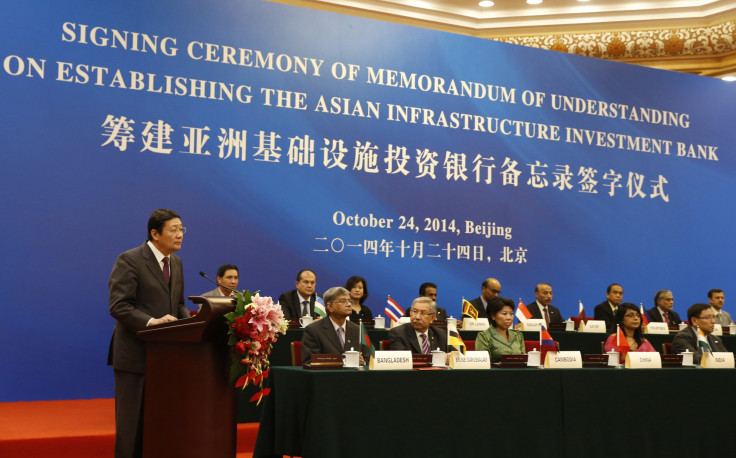China-Led Devt Bank Receives Nod Of Support From Big 3 IMF, ADB, WB; US Proposes Co-Financing Projects

The United States has reportedly proposed willingness to work with China-led Asian Infrastructure Investment Bank (AIIB), in what could be seen as a surrender to the creation of the clout that China has managed to accumulate over the development. Even the big three banks – the International Monetary Fund, Asian Development Bank and World Bank – have given its respective nods of support for the newly-created infrastructure bank, with 27 countries set to join.
A report by the WSJ, citing Nathan Sheets, U.S. Treasury undersecretary for international affairs, said the U.S. has accepted the presence of the China-led bank and that it has suggested the $50 billion multilateral lender AIIB work on projects in collaboration with western-backed development institutions. The collaboration will help “ensure the new bank complements rather than competes with existing institutions,” the report said. “The U.S. would welcome new multilateral institutions that strengthen the international financial architecture," Sheets said.
The big three western-backed financial institutions have all expressed support for the new AIIB. Christine Lagarde, IMF managing director, speaking at a conference in Beijing, said the fund will be "delighted" to cooperate with the China-led bank. Takehiko Nakao, ADB President, disclosed discussions have been opened between the two banks on possible cooperation. Sri Mulyani Indrawati, World Bank Managing Director, in an interview with China’s official Xinhua News Agency, said that the AIIB is much welcomed by the WB, "Any new initiative that will mobilize funding in order to fill infrastructure gap is certainly welcome."
With an aim to extend project loans to developing countries, AIIB is scheduled to formally commence lending operations by end 2015. The U.S. have expressed fears that the China-led bank will not fair play in the field, something which China's Finance Minister Lou Jiwei flatly denied on China National Radio on Saturday. He said, "China will follow the rules of the international community and will not bully other members but work together with them and try to reach consensus in all the decisions we make without brandishing the majority shareholder status." At least eight more countries may join the lender by the March 31 deadline. Close U.S. allies in Asia – South Korea, Australia and Japan – have yet to decide whether to join or not.
Indrawati likewise believed the AIIB won’t become a competitor to the WB or to any other existing regional development banks. "What's important is whether you are going to be able to match the funding with the need of infrastructure," she said, noting “the global need of infrastructure is huge and the market is large enough.”
That the AIIB is working closely with WB, it meant that the China-led bank wants to “show and prove that they are adopting the same principle like other international institutions," Indrawati said.
To report problems or to leave feedback about this article, e-mail: e.misa@ibtimes.com.au.





















